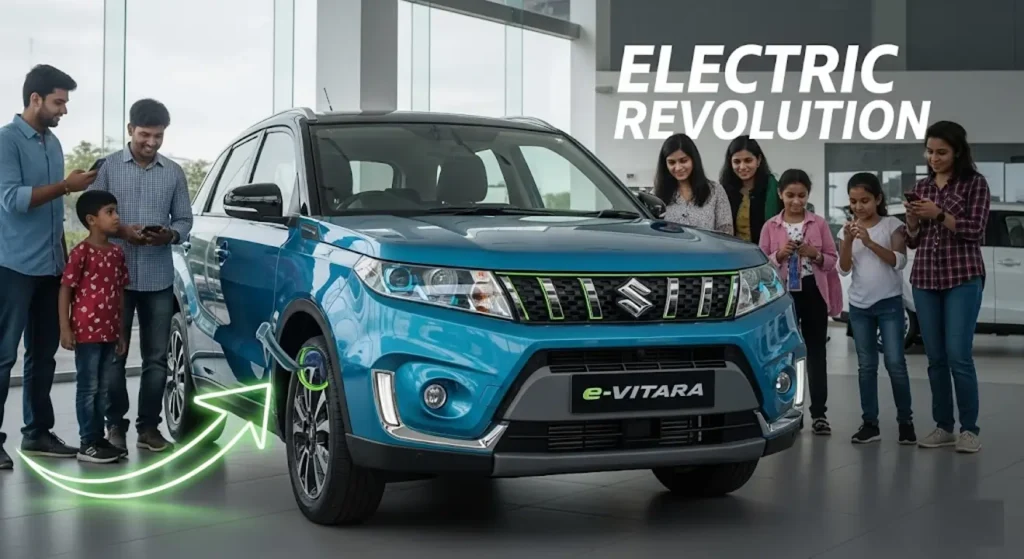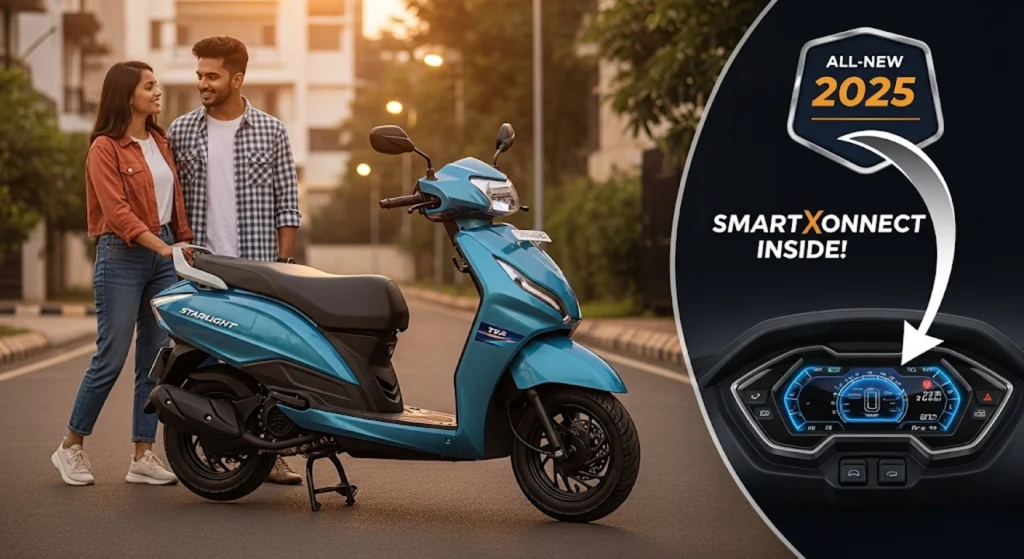PM Modi Flags Off Maruti Suzuki’s Electric Era: e-Vitara Could Redefine the Indian EV Landscape at a Starting Price of ₹15 Lakh!
Prime Minister Narendra Modi recently flagged off Maruti Suzuki’s first-ever electric vehicle, the e-Vitara, marking a significant milestone in India’s electric mobility journey. This move signals Maruti Suzuki’s serious intent to capture a substantial share of the burgeoning EV market, and with a potential starting price of around ₹15 lakh, the e-Vitara has the potential to democratize electric SUVs in India. But can Maruti replicate its petrol success in the EV space, and how will the e-Vitara fare against established rivals?
Price & Variants: Positioning for Mass Appeal
Maruti Suzuki is known for its value-centric approach, and the e-Vitara is expected to follow suit. While official prices are yet to be announced, industry experts predict aggressive pricing to gain early market share.
- Expected Ex-Showroom Price: The base variant could start around ₹15 Lakh to ₹16 Lakh, making it competitive with existing sub-compact and compact electric SUVs. Higher variants with more features and a larger battery pack could range up to ₹18 Lakh to ₹20 Lakh.
- Expected On-Road Price: After factoring in subsidies (both central and state, if applicable), insurance, and registration, expect the on-road price of the base e-Vitara to be in the range of ₹16 Lakh to ₹18 Lakh, making it a compelling option for those considering their first electric SUV.
Range & Battery (Kitna Chalti Hai?): Aiming for Practicality
While official range figures haven’t been revealed, Maruti Suzuki is likely targeting a practical range that alleviates range anxiety for everyday Indian drivers.
The e-Vitara is expected to come with at least two battery pack options. The smaller battery could offer a real-world range of around 250-300 km, suitable for city commutes and short intercity trips. The larger battery variant might push this to 350-400 km, putting it in direct competition with the longer-range versions of its rivals. Maruti Suzuki will likely emphasize battery durability and offer attractive warranty packages, reassuring buyers about long-term ownership.
Features & Design: Familiarity with a Modern Twist
The e-Vitara is expected to retain the familiar silhouette and robust design language of its petrol counterpart, the Grand Vitara, but with EV-specific styling cues.
- Exterior: Expect a closed-off front grille, aerodynamic enhancements, and possibly unique alloy wheel designs to distinguish the electric version.
- Interior: The cabin will likely feature a modern layout with a focus on digital interfaces, including a large touchscreen infotainment system with connected car technology and a digital instrument cluster displaying crucial EV-related information like range and power consumption.
- Safety: Maruti Suzuki is expected to equip the e-Vitara with a comprehensive suite of safety features, including multiple airbags, ABS with EBD, electronic stability program (ESP), and possibly advanced driver-assistance systems (ADAS) in higher variants.
Rival Comparison: Entering a Hotly Contested Segment
The Maruti e-Vitara will be stepping into a segment already populated by strong contenders.
- vs. Tata Nexon EV: The Nexon EV is currently the best-selling electric SUV in India. The e-Vitara will need to offer a compelling combination of range, features, and price to challenge its dominance. Maruti’s brand trust and extensive service network could be key differentiators.
- vs. Mahindra XUV400: The XUV400 offers a competitive range and performance. The e-Vitara will likely focus on a more refined driving experience and the reliability associated with the Maruti Suzuki brand.
- vs. Hyundai Creta EV (expected): With Hyundai also planning an electric version of the popular Creta, the e-Vitara will face stiff competition from another established player with a strong brand presence.
Value-for-Money Analysis: Will Maruti Crack the EV Code?
- Who should consider this electric SUV? Existing Maruti Suzuki customers looking to transition to electric mobility will find the e-Vitara a familiar and trustworthy option. It will also appeal to first-time EV buyers who prioritize reliability, a strong service network, and a value-for-money proposition. Families looking for a spacious and practical electric SUV for city commutes and weekend trips should also consider it.
- Who shouldn’t? Early EV adopters who prioritize cutting-edge technology and the absolute highest range figures might look at offerings from newer EV-focused brands. Performance enthusiasts might also find the e-Vitara’s expected performance figures to be modest compared to some rivals.
Buyer Advice: The Expert’s Take
Here’s my perspective for potential buyers:
- If you trust the Maruti Suzuki brand, value reliability and a widespread service network, and are looking for a practical and reasonably priced electric SUV, the e-Vitara should be high on your list. Wait for the official launch and test drives to assess the real-world range and performance.
- If you are chasing the absolute longest range or the quickest acceleration in the EV segment, explore options from Tata Motors, Mahindra, and upcoming models from other manufacturers. However, be prepared to potentially compromise on brand familiarity and service reach.
Frequently Asked Questions (FAQs)
Final Verdict: A Promising CONTENDER
The Maruti Suzuki e-Vitara’s entry into the Indian electric SUV market is a game-changer. With the backing of the country’s largest carmaker, its potential for mass adoption is immense. While it will face stiff competition, the e-Vitara’s expected blend of reliability, practicality, and competitive pricing makes it a very promising BUY for a large segment of Indian consumers looking to go electric.



